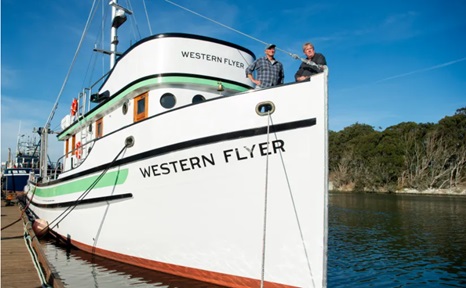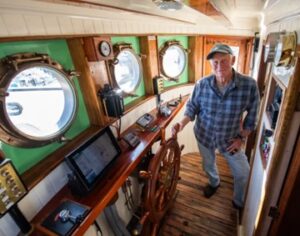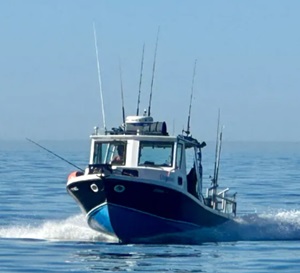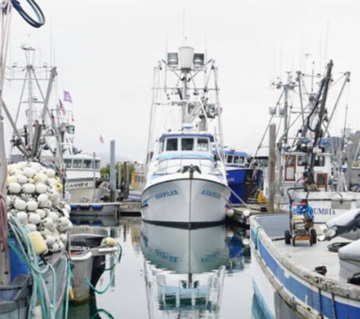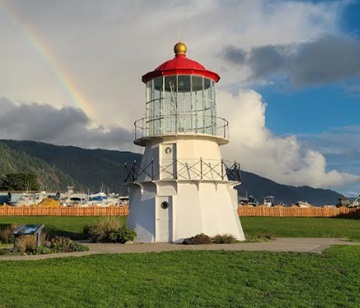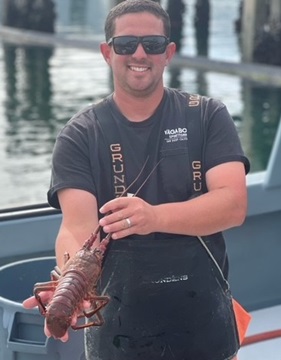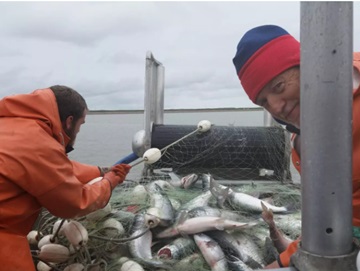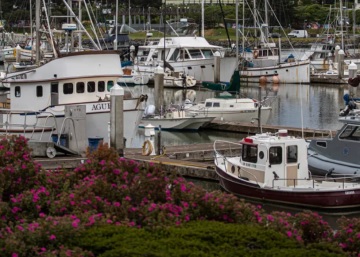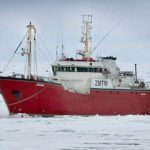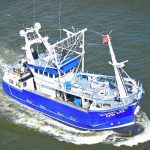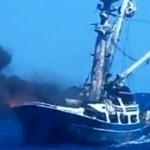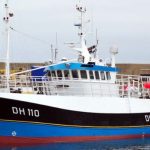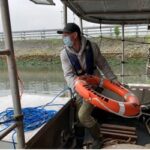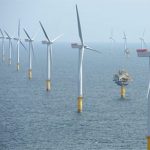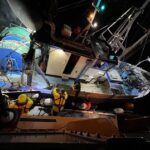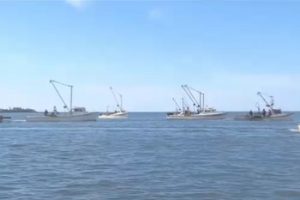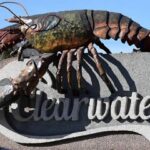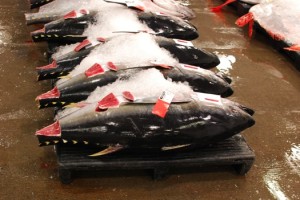Category Archives: Pacific
U.S. regulators will review car-tire chemical that kills salmon, upon request from West Coast tribes
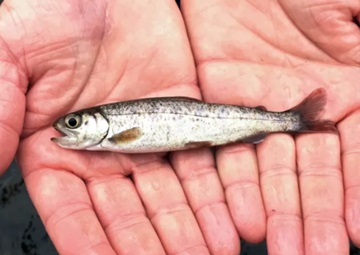 U.S. regulators say they will review the use of a chemical found in almost every tire after a petition from West Coast Native American tribes that want it banned because it kills salmon as they return from the ocean to their natal streams to spawn. The Yurok tribe in California and the Port Gamble S’Klallam and Puyallup tribes in Washington asked the Environmental Protection Agency to prohibit the rubber preservative 6PPD earlier this year, saying it kills fish — especially coho salmon — when rains wash it from roadways into rivers. Washington, Oregon, Vermont, Rhode Island and Connecticut also wrote the EPA, citing the chemical’s “unreasonable threat” to their waters and fisheries. >>click to read<< 10:14
U.S. regulators say they will review the use of a chemical found in almost every tire after a petition from West Coast Native American tribes that want it banned because it kills salmon as they return from the ocean to their natal streams to spawn. The Yurok tribe in California and the Port Gamble S’Klallam and Puyallup tribes in Washington asked the Environmental Protection Agency to prohibit the rubber preservative 6PPD earlier this year, saying it kills fish — especially coho salmon — when rains wash it from roadways into rivers. Washington, Oregon, Vermont, Rhode Island and Connecticut also wrote the EPA, citing the chemical’s “unreasonable threat” to their waters and fisheries. >>click to read<< 10:14
A business in crisis
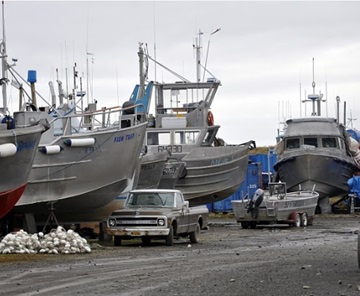 After years of choking on record runs of Bristol Bay sockeye salmon and near-record runs of heavily farmed, low-value pink salmon, the Alaska fishing industry is in chaos with processors now pleading for more government subsidies and coddled commercial fishermen demanding yet more disaster aid. One could blame global warming, which has led to historically unprecedented harvests of Alaska salmon despite whatever nonsense to the contrary the mainstream media might have reported, but the industry’s problems are far more complex than just trying to sell high-priced seafood in Western markets where the sales of animal protein are dominated by chicken, beef and pork. Some of the industry’s issues here are rooted in its long history. For most of the years after commercial fishing began in Alaska in the late 1800s, the business dealt almost wholly in canned salmon. >>click to read<< 08:41
After years of choking on record runs of Bristol Bay sockeye salmon and near-record runs of heavily farmed, low-value pink salmon, the Alaska fishing industry is in chaos with processors now pleading for more government subsidies and coddled commercial fishermen demanding yet more disaster aid. One could blame global warming, which has led to historically unprecedented harvests of Alaska salmon despite whatever nonsense to the contrary the mainstream media might have reported, but the industry’s problems are far more complex than just trying to sell high-priced seafood in Western markets where the sales of animal protein are dominated by chicken, beef and pork. Some of the industry’s issues here are rooted in its long history. For most of the years after commercial fishing began in Alaska in the late 1800s, the business dealt almost wholly in canned salmon. >>click to read<< 08:41

Wood and colleagues visit East Coast offshore wind project
“We as state legislators have a critical and essential role in fostering the offshore wind market in California by developing policies that support procurement and development, investment in ports and supply chains, and strategies and policies for maximizing local economic development,” said Wood. “We wanted to visit Massachusetts and attend this conference to learn what needs to be done and how to do it successfully. California has a number of key stakeholders and we need to make sure we are all rowing in the same direction, with the wind behind us, so to speak, avoiding any headwinds.” >>click to read<< 07:57
Alaska seafood harvesting jobs decline as fish crashes, pandemic and other factors take toll
Alaska fish-harvesting employment declined in 2022, a continuing yearslong slide caused by a variety of factors, according to an analysis by the state Department of Labor and Workforce Development. Employment for people harvesting seafood dropped by about a quarter from 2015 to 2022, according to the analysis, published in the November issue of Alaska Economic Trends, the department’s monthly research magazine. The industry lost ground compared to other sectors of the Alaska economy, the analysis found. Seafood harvesting accounted for 7.3% of Alaska jobs in July of 2021, but only 5.7% of Alaska jobs were in seafood harvesting in the following July. Fishery work is highly seasonal, and July is the peak month for it. >>click to read<< 16:15
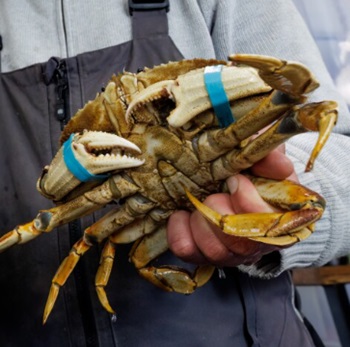
Dungeness crab season delayed again this year, another blow to Santa Cruz fishing industry
Commercial Dungeness crab season had been set to open Nov. 15, but amid concerns about whale safety that have delayed the season in recent years, the California Department of Fish & Wildlife has pushed it back to at least Dec. 1. “For many fishermen, this means there’s no income right now,” one veteran says, “and they’re hanging by the threads.” “It’s really bad,” said Tim Obert of the conditions for local commercial fishermen. “This is the worst year I’ve seen before. We have always had the salmon to back up the crab.” “For many fishermen, this means there’s no income right now and they’re hanging by the threads,” he said. “However, we’re kind of used to it now.” >>click to read << 12:46
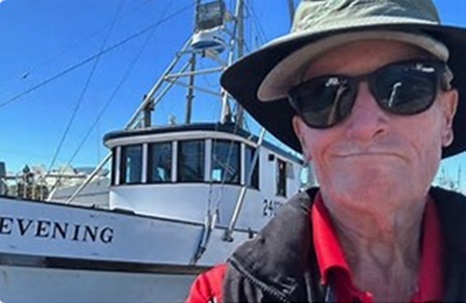
Missing Westport fisherman identified after Coast Guard calls off search
Mick Diamond, or Mike, depending on who you talked to, wasn’t everyone’s favorite person. But if you loved him, you liked him, even when he drove you up the wall, according to his son, Joe. Diamond, 63, and a crewmate went missing on the fishing vessel Evening nearly two weeks ago after they departed the Westport Marina in Grays Harbor. Diamond’s crewmate, who has not yet been publicly identified, was found alive by a Canadian fishing family 13 days later, in a life raft 70 miles northwest of Cape Flattery. Diamond has not been found. His family says they were told via a statement from the survivor that the boat capsized after it got caught in a trough between rough swells, and that Diamond told the surviving crew member to get to the life raft while he took control of the vessel. >>click to read<< 07:03
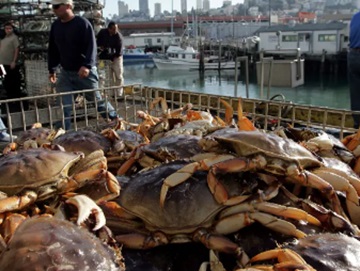
California commercial Dungeness crab season delayed
California’s commercial Dungeness crab seasons will be delayed this year, the California Department of Fish & Wildlife announced Friday. The delays are being enacted in order to protect whales from becoming entangled in crab traps. The opening of the commercial Dungeness crab fishing season will be delayed in Fishing Zones 3, 4, 5, and 6, an area of the state’s coastline that stretches from the Sonoma/Mendocino County line to the U.S.A.-Mexico border. The delay is due to a large number of humpback whales in the area. >>click to read<< 17:33

Fishing crew speaks after finding missing American off B.C. coast
A B.C. fishing crew has found an American fisherman who had been missing off the Pacific coast for weeks. John Planes and his Ucluelet fishing crew spotted an emergency lift raft off the coast of Vancouver Island, Thursday morning. What they found was shocking when they arrived at the life raft — an American fisherman who had been lost at sea for 13 days. The American, who is unnamed at this point, departed from Washington State on Oct. 12. “We were getting near the end of our fishing set and (a crew member) spotted the life raft,” Planes said. “He hugged me right away as soon as he got on board. He was crying, he was just so glad somebody had actually picked him up. Video, >>click to read<< 13:55
Boatyard Offers Assistance to Commercial Fishermen Hampered by Regulations
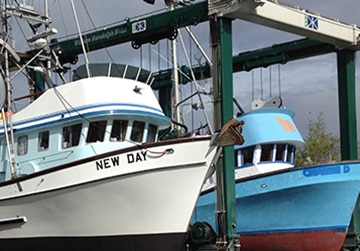 KKMI Boatyard Offers Assistance to Commercial Fishermen Reeling in the bad taste of lost revenue. KKMI announced today they will be offering free haulouts to commercial fishing vessels, giving this hard-hit industry some much needed financial relief after a cancelled salmon season made it quite difficult to eke out a living. This offer is good at both KKMI locations on the San Franciso Bay – Richmond and Sausalito. We are in a position to help out and we are honored to be able to do so,” said KKMI Founder, Paul Kaplan. >>click to read<< 08:16
KKMI Boatyard Offers Assistance to Commercial Fishermen Reeling in the bad taste of lost revenue. KKMI announced today they will be offering free haulouts to commercial fishing vessels, giving this hard-hit industry some much needed financial relief after a cancelled salmon season made it quite difficult to eke out a living. This offer is good at both KKMI locations on the San Franciso Bay – Richmond and Sausalito. We are in a position to help out and we are honored to be able to do so,” said KKMI Founder, Paul Kaplan. >>click to read<< 08:16
Survivor From Lost Fishing Boat Saved After Coast Guard Ended Search
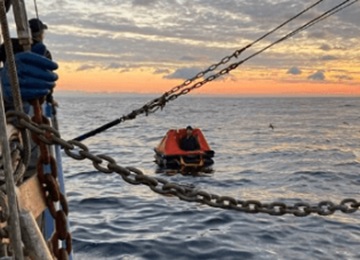 This week, the U.S. Coast Guard ended searches for two commercial fishing vessels that each disappeared without a trace, one in Washington and another in Georgia. The Washington case ended in a miracle: a crewmember was found alive after formal search efforts had ended. On Tuesday, Coast Guard Station Grays Harbor announced that it had launched a search for a 43-foot commercial fishing vessel, the Evening, which was nine days overdue. Miraculously, one crewmember of the Evening survived and was found by a good Samaritan vessel on Thursday morning – a day after the formal search ended. He was floating in a life raft off the west coast of Vancouver Island, near Tofino. The whereabouts of the other crewmember are not known. On Thursday, the U.S. Coast Guard suspended a search for a commercial fishing vessel F/V Carol Ann that had gone missing with three crewmembers off the coast of Brunswick, Georgia. >>click to read<< 07:15
This week, the U.S. Coast Guard ended searches for two commercial fishing vessels that each disappeared without a trace, one in Washington and another in Georgia. The Washington case ended in a miracle: a crewmember was found alive after formal search efforts had ended. On Tuesday, Coast Guard Station Grays Harbor announced that it had launched a search for a 43-foot commercial fishing vessel, the Evening, which was nine days overdue. Miraculously, one crewmember of the Evening survived and was found by a good Samaritan vessel on Thursday morning – a day after the formal search ended. He was floating in a life raft off the west coast of Vancouver Island, near Tofino. The whereabouts of the other crewmember are not known. On Thursday, the U.S. Coast Guard suspended a search for a commercial fishing vessel F/V Carol Ann that had gone missing with three crewmembers off the coast of Brunswick, Georgia. >>click to read<< 07:15

Struggling salmon fishermen getting federal help, but it may be too late
Earlier this month, two years after a request by Oregon’s governor, the U.S. Department of Commerce declared a Chinook fishery disaster for 2018, 2019 and 2020, years when local salmon populations plummeted. Fishing regulators blame the drop on poor habitat conditions and climate change near the California-Oregon border, where thousands of Chinook migrate from the ocean up rivers and streams to spawn. The disaster declaration releases financial assistance for fishermen and possibly for other businesses, along with funding to help restore the fishery and protect future Chinook runs, members of Oregon’s congressional delegation said in a statement. “The powers that be move pretty slowly when it comes to this stuff,” said Ray Monroe, a Pacific City dory fisherman. >>click to read<< 12:00
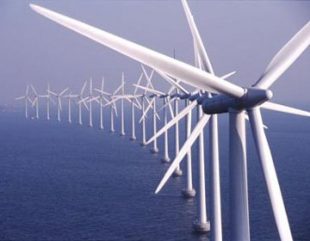
Offshore Wind Is A Dangerous Pipe Dream Costing Taxpayers Billions
How many times have we heard that wind power, coupled with the sun’s energy, is going to save us from our fossil-fuel-burning ways? Maybe one day it will. But at no time soon will it happen. And by soon, we mean in most of our lifetimes. How can we say this? Look around at what’s happening with wind energy [emphasis, “California’s Central Coast residents work to stop — or at least slow down — offshore wind.”,,, “Orsted Threatens To Abandon U.S. Offshore Wind Projects.” Biden administration guarantees more support.,, “Electricity from wind isn’t cheap and it never will be.” The list above is no more than a start. There are many more stories we could have cited, and there are many more to come. Wind energy is unreliable, and its costs are not competitive at scale. Lots of links! >>click to read<< 18:22
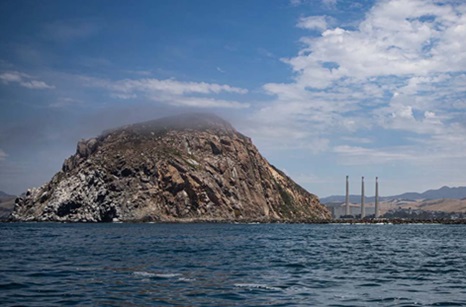
Some Morro Bay Residents Are Dead Set Against CA’s Offshore Wind Farms
Joey Racano used to have a dining room table. Now the sunlit nook off the family kitchen more often than not serves as a conference room. The table is covered with maps, thick binders bulging with tech reports, towers of meeting minutes, abandoned coffee mugs — the accumulation of years of community vigilance. On this day, his home is a lively place where a handful of locals are discussing one of California’s most complex and audacious initiatives — loading the Pacific Ocean with sprawling wind farms that float 20 miles from shore. “This is just another attempt to industrialize the coast,” said Rachel Wilson, who lives in Cayucos, a tiny, old-fashioned beach town, and regularly attends public meetings about the wind projects. “I can just see Port Hueneme with cranes and lights and a huge wharf in my charming little coastal community. No way.” >>click to read<< 08:37
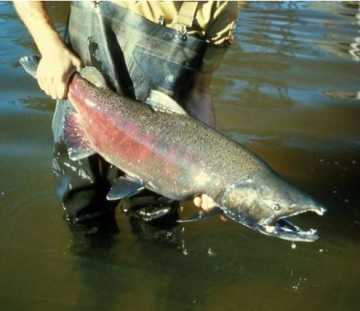
With salmon at risk of extinction, California begins urgent rescue effort
Typically, now is the time when creeks along the Sacramento River are filled with young spring-run Chinook salmon preparing to make their journey downstream to the Pacific Ocean, where they will mature, and eventually make their return to California spawning sites. This year, however, the salmon population has plummeted alarmingly—what officials call a “cohort collapse”—and biologists are taking urgent measures to save them from extinction. For the first time, biologists with the California Department of Fish and Wildlife and the National Oceanic and Atmospheric Administration have begun capturing the juvenile spring-run salmon so that they can breed them in captivity, and hopefully prevent them from disappearing from the wild. For the first time, biologists with the California Department of Fish and Wildlife and the National Oceanic and Atmospheric Administration have begun capturing the juvenile spring-run salmon so that they can breed them in captivity, and hopefully prevent them from disappearing from the wild. >>click to read<< 13:25
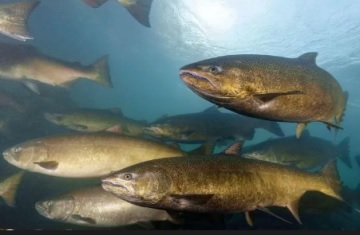
Oregon fishing disaster declared after failure impacting Chinook Salmon
Oregon Gov. Tina Kotek announced Friday that a fishing disaster has been declared following a three-year commercial fishery failure in the state. The declaration comes after U.S. Secretary of Commerce Gina Raimondo determined that a commercial fishery failure occurred in 2018, 2019 and 2020 because of a fishery resource disaster impacting Oregon Chinook Salmon Fisheries, the governor said. The determination comes after a request from former Gov. Kate Brown in October 2021. Fisheries with disaster determinations are eligible for funding from fishery disaster appropriations to help with community recovery, fishery restoration and prevention of future disasters. >>click to read<< 17:00
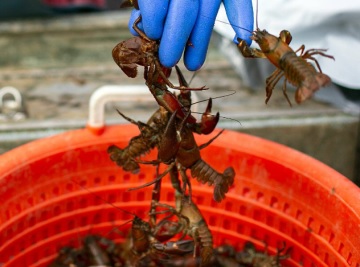
A Southern tradition, fresh from the Snohomish River
It’s a far cry from the bayous of Louisiana, but the crawfish look right at home in the metal trap as Ithamar Glumac hoists them out of the water. “They’re bottom feeders, so they’re perfectly happy to hang out in this trap for as long as I’ll leave them there,” Glumac said. “Food floats right on by and predators can’t get them, so it’s probably like a nice vacation home for them more than anything.” A huge plastic bucket, full of crawfish loosed from similar traps just minutes before, awaits on Glumac’s boat. He unlatches the wire cage and shakes the most recent handful of tiny lobsters out into the tub with their brethren. Then it’s on to the next stop, another one of the hundreds of traps up the Snohomish River pinpointed by Glumac’s GPS-powered fish finder. Photos, >>>.click to read<<< 15:42
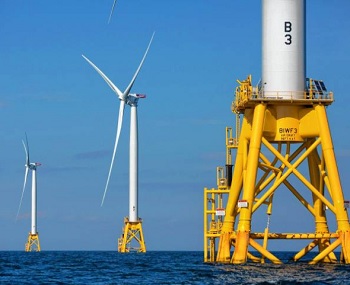
New California law aims to speed up offshore wind development
A law signed by California Governor Gavin Newsom on Saturday aims to speed up the process for new offshore wind development. The law requires California’s Coastal Commission to process consolidated permits for coastal development, which the law’s main sponsor says will streamline permitting. His district includes Mendocino, Trinity and Humboldt counties. McGuire said in a press release that this law will slash five years off the normal permitting timeline for offshore wind projects. He said it will help the state meet its goals in terms of climate change and renewable energy. >>click to read<< 09:31
Athearn Marine Agency Boat of the Week: 35′ H&H Osmond Beal Lobster Boat, Cummins QSL9 Diesel
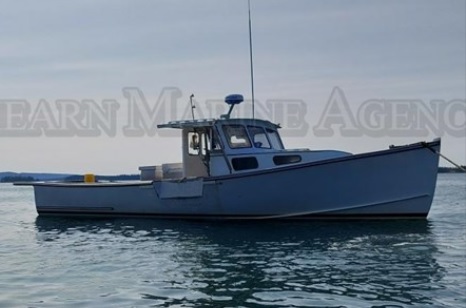 To review specifications, information, and 14 photos’, >click here<, To see all the boats in this series, >click here< 10:23
To review specifications, information, and 14 photos’, >click here<, To see all the boats in this series, >click here< 10:23

How Shark Meat Is Prepared In US Restaurants
Shark meat is not one of those things we instinctively think of as being good eating. However, like any other kind of athletic fish, shark offers an excellent amount of flavorful, high-protein meat for consumption. Though it is eaten the world over, in the United States it often comes bearing a different name. Though it is prepared in a number of different ways, chances are that, if you’re eating out, you won’t have any idea that there is a shark on your plate. Though it varies between species, shark meat generally has a very meaty texture and is quite mildly flavored. It is therefore easy for shark to substitute for other types of fish. For example, shark is often used to make fish and chips. >>click to read<< 09:38
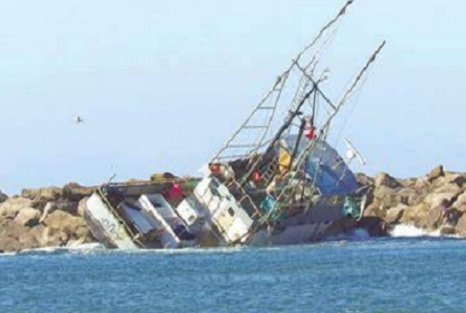
Beached fishing boat recovered
The fishing vessel Judy is floating again after a salvage attempt caused it to crash into the south Jetty and flip onto its side twice. The Judy was reported aground in the sand south of the South Jetty on Sept. 18. Since then, owners made several attempts to refloat the vessel at high tide but were unsuccessful. At the salvage site, one could see two US Coast Guard motor lifeboats at the end of the bar, and the 102-foot tugboat Noelani about 1/3 of a mile out with a long, buoyed line connecting it to the Judy. O as the Judy began to inch forward, eventually floating upright as floated away from the shore. However, as it was being pulled, the Judy began to move precariously nearer to the south Jetty. The tug could be seen moving south to counter the move but when tension was applied to the tow line, the Judy veered right and hit the rocks. 3 photos, >>click to read<< 15:00
The Western Flyer Returns Home to Monterey!
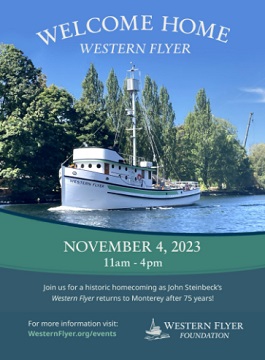 She’s coming home at last! After being away for 75 years, the historic Western Flyer—the sardine fishing boat immortalized by John Steinbeck’s 1951 classic The Log from the Sea of Cortez—will return to her home port of Monterey on Saturday, November 4th. “The Western Flyer was built for Monterey’s sardine fishery in 1937, and while it gained notoriety from its 1940 research trip with John Steinbeck and Ed Ricketts, it’s had a long and storied past as a fishing boat,” said marine geologist John Gregg, founder and board member of the Western Flyer Foundation. “Now restored with a hybrid diesel-electric engine and state-of-the-art marine lab, the Flyer symbolizes a bridge, linking Monterey’s commercial fishing heritage with its leadership in marine science and education.” When Gregg purchased the Western Flyer in 2015, the neglected 77-foot fishing vessel had sunk several times and was almost beyond repair. >>click to read<< 07:50
She’s coming home at last! After being away for 75 years, the historic Western Flyer—the sardine fishing boat immortalized by John Steinbeck’s 1951 classic The Log from the Sea of Cortez—will return to her home port of Monterey on Saturday, November 4th. “The Western Flyer was built for Monterey’s sardine fishery in 1937, and while it gained notoriety from its 1940 research trip with John Steinbeck and Ed Ricketts, it’s had a long and storied past as a fishing boat,” said marine geologist John Gregg, founder and board member of the Western Flyer Foundation. “Now restored with a hybrid diesel-electric engine and state-of-the-art marine lab, the Flyer symbolizes a bridge, linking Monterey’s commercial fishing heritage with its leadership in marine science and education.” When Gregg purchased the Western Flyer in 2015, the neglected 77-foot fishing vessel had sunk several times and was almost beyond repair. >>click to read<< 07:50
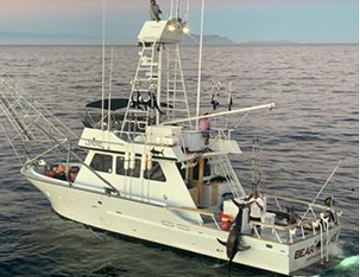
First permits issued for swordfish captains in California
The first commercial fishing permits for the use of deep-set buoy gear in the swordfish fishery in the US state of California were issued by the National Marine Fisheries Service on September 15, marking a significant transition from the large nets that drifted off the West Coast. Gillnets will finally disappear by 2027, replaced mostly by deep-set buoy gear — vertical lines about 150 fathoms long, with a flagpole with a light or radar reflector on top and a bug- and sinker to keep the line anchored vertically. Main lines usually have one to three round hooks with a light attached to shine below the thermocline in 20 to 70 meters (65 to 230 feet) of California water. The gear is designed to be actively maintained, with strike indicators on the surface to alert anglers when a fish is present. >>click to read << 16:23
October 2nd is National Fried Scallops Day 2023: History, Activities and FAQs
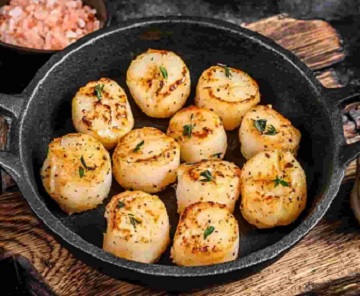 National Fried Scallops Day 2023: October is a month filled with opportunities to celebrate seafood, and what better way to kick off the feast than with National Fried Scallops Day on October 2? When properly prepared, scallops become the ideal melt-in-your-mouth delicacy, transporting you on a culinary journey of oceanic excellence. Scallops are members of the mollusk family Pectinidae. They are able to swim by rapidly closing and opening their shells with a muscle that is typically the most palatable portion to humans. Scallops are relished in a variety of ways (e.g., in soups, pasta, and sushi), but the ones fried in butter and a blend of herbs and spices are among the most popular and beloved. >>click to read<< 21:52
National Fried Scallops Day 2023: October is a month filled with opportunities to celebrate seafood, and what better way to kick off the feast than with National Fried Scallops Day on October 2? When properly prepared, scallops become the ideal melt-in-your-mouth delicacy, transporting you on a culinary journey of oceanic excellence. Scallops are members of the mollusk family Pectinidae. They are able to swim by rapidly closing and opening their shells with a muscle that is typically the most palatable portion to humans. Scallops are relished in a variety of ways (e.g., in soups, pasta, and sushi), but the ones fried in butter and a blend of herbs and spices are among the most popular and beloved. >>click to read<< 21:52

Judge declaws key part of Massachusetts lobstermen’s libel lawsuit against California aquarium
A federal judge in Louisiana ruled this week there’s no rational reason for Massachusetts lobstermen to sue a California aquarium for libel in Louisiana, which has a law against disparaging seafood, and so ordered the case moved to California, where you’re free to say what you want about harvested sea creatures. Aa group of lobstermen from Gloucester, Marion, North Truro and Plymouth had sued the Monterey Bay Aquarium earlier this year for a press release in which the aquarium said the way lobsters are caught off New England endangers the increasingly rare Atlantic right whale and urged companies and consumers to consider other briny alternatives. >>click to read<< 09:28






